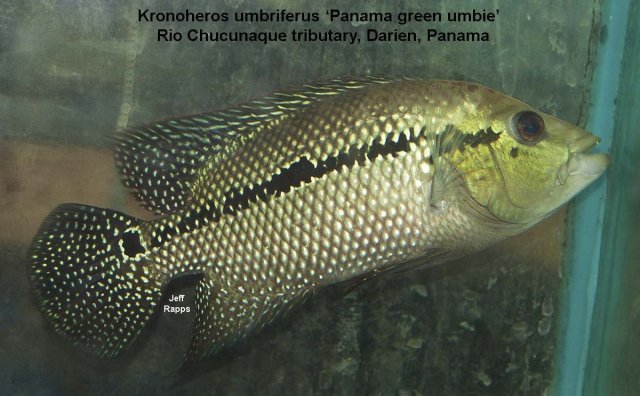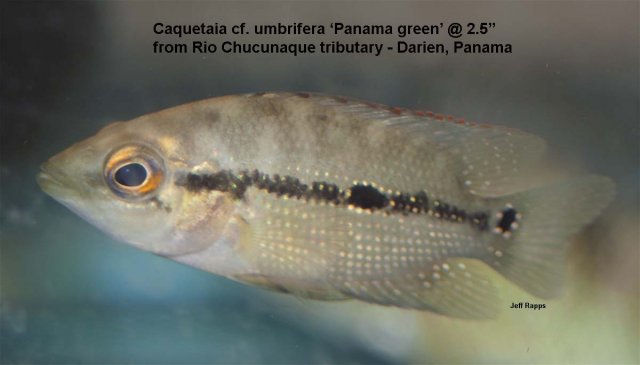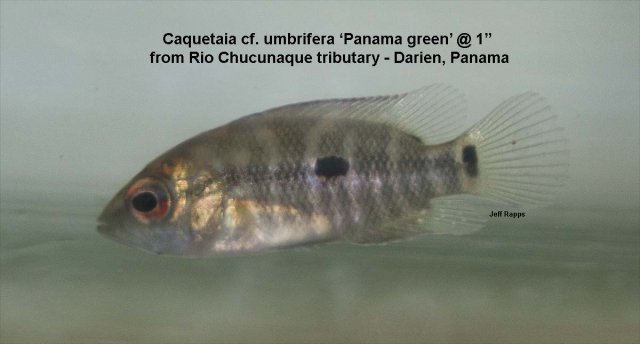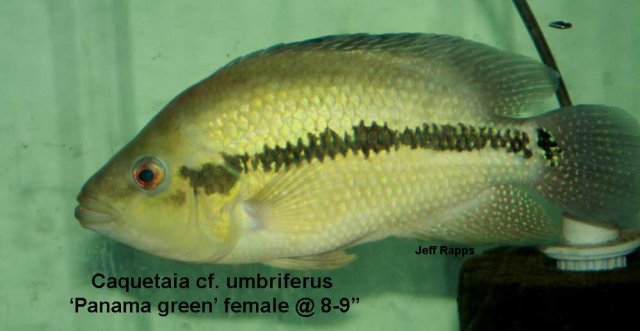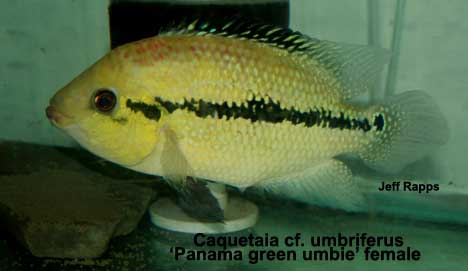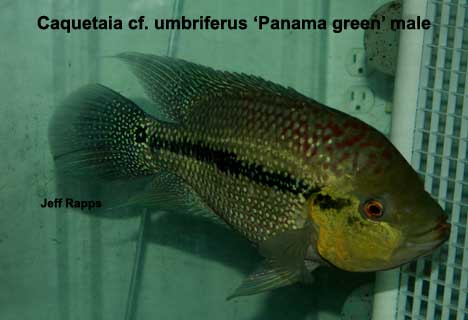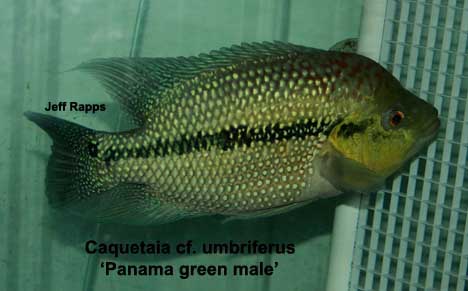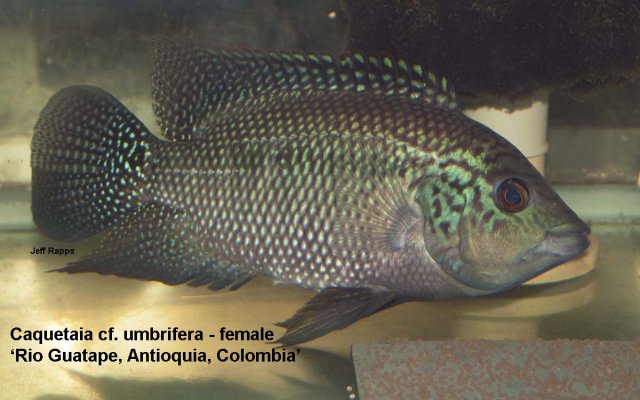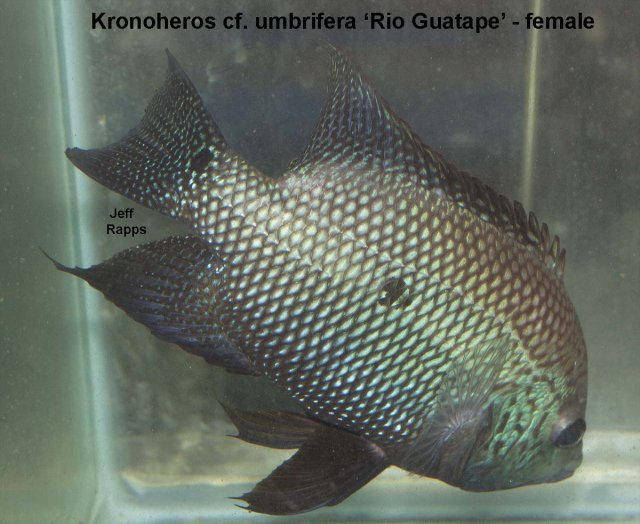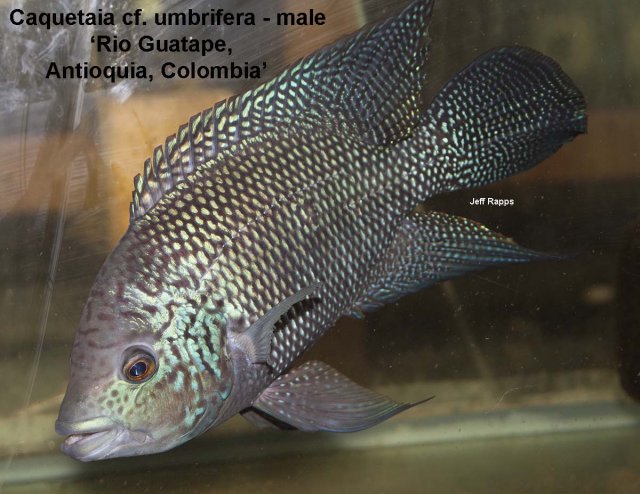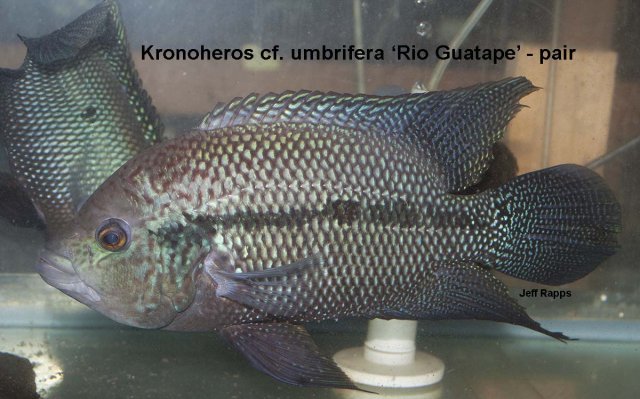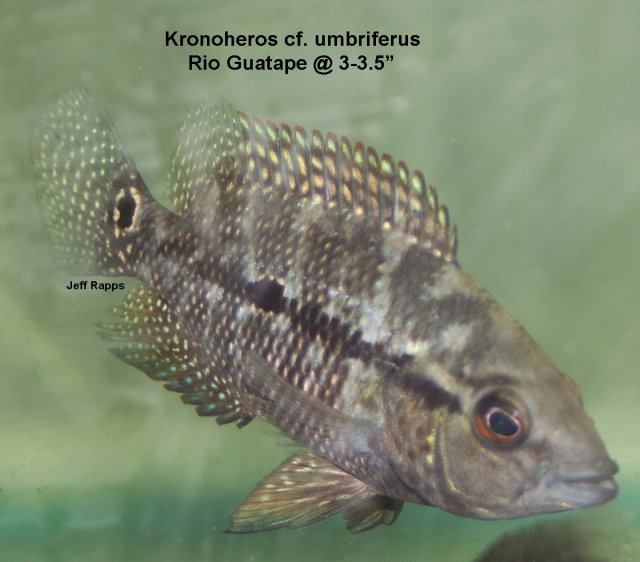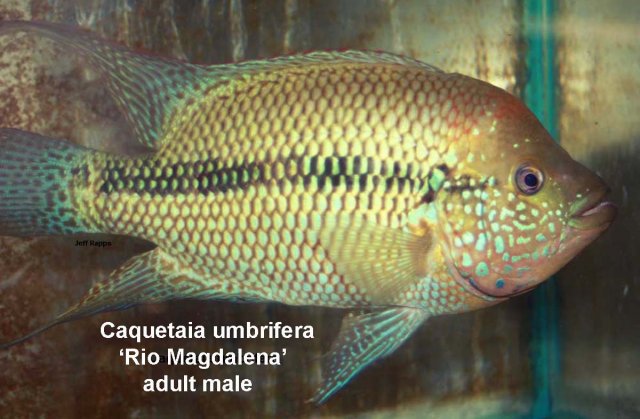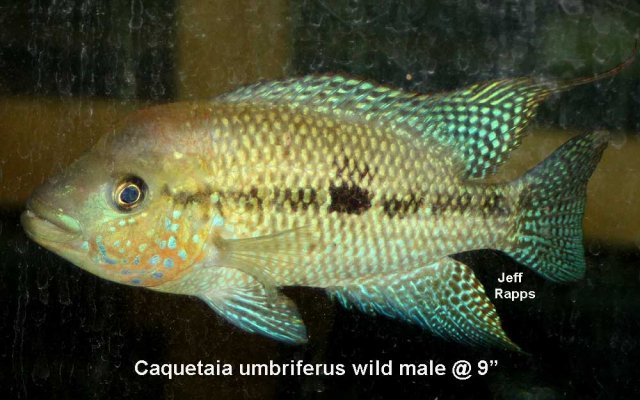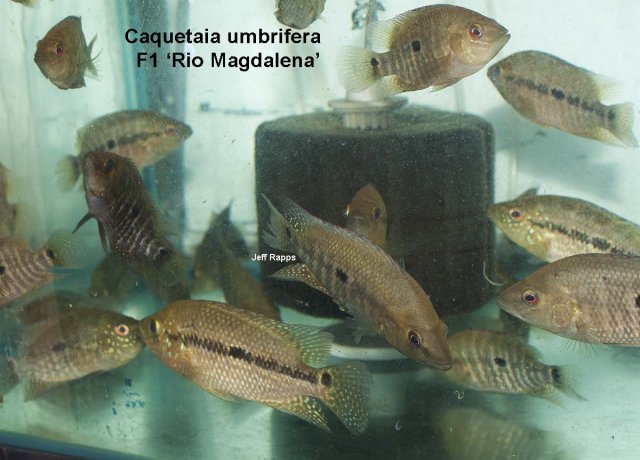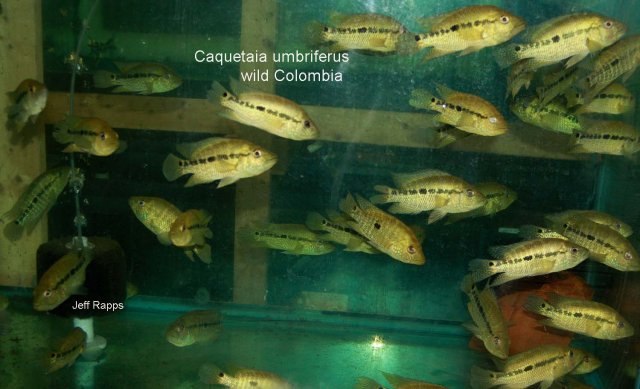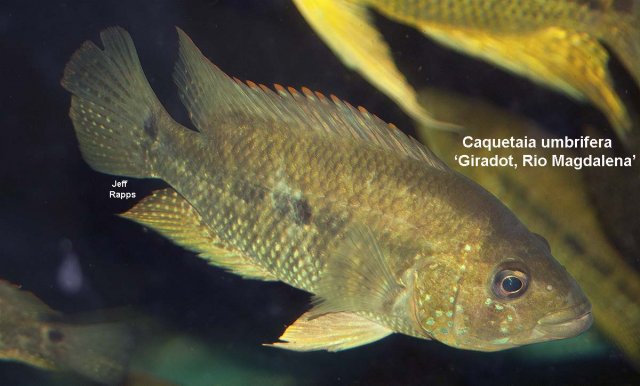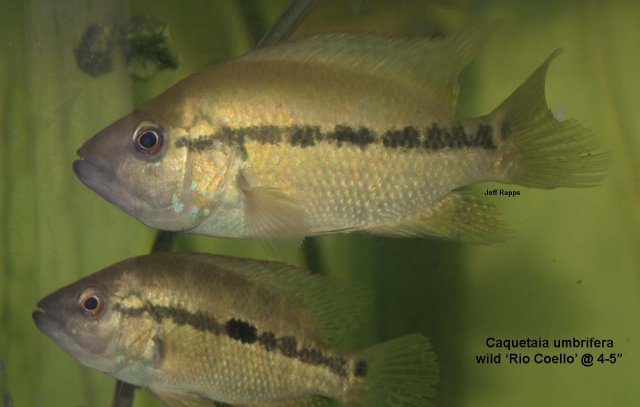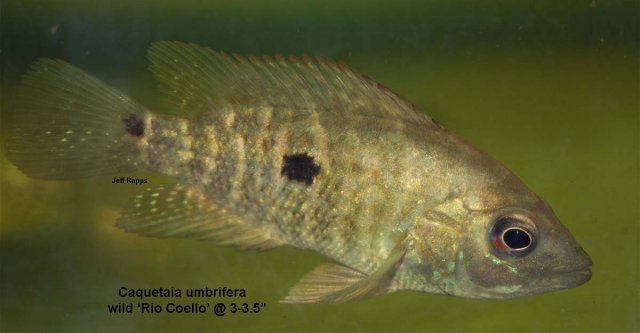In their description of the new genus for umbees, the scientists mentioned that the DNA supported two different and distinct species (Panamian and Colombian) but there was nothing in the article that actually showed the differences. Has anyone run across a follow up paper on this?
"Mitochondrial DNA cytb gene (Concheiro Pérez et al., 2007) shows substantial separation (~ 6 My; Říčan et al., 2013) supporting two separate species."
- Říčan, O., Piálek, L., Dragová, K. & Novák, J. (2016): Diversity and evolution of the Middle American cichlid fishes (Teleostei: Cichlidae) with revised classification. Vertebrate Zoology, 66 (1): 1-102
"Mitochondrial DNA cytb gene (Concheiro Pérez et al., 2007) shows substantial separation (~ 6 My; Říčan et al., 2013) supporting two separate species."
- Říčan, O., Piálek, L., Dragová, K. & Novák, J. (2016): Diversity and evolution of the Middle American cichlid fishes (Teleostei: Cichlidae) with revised classification. Vertebrate Zoology, 66 (1): 1-102




